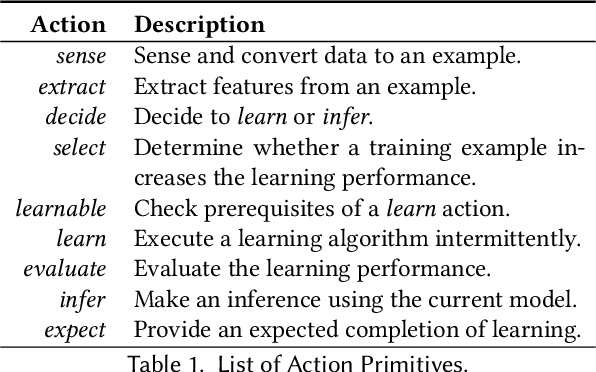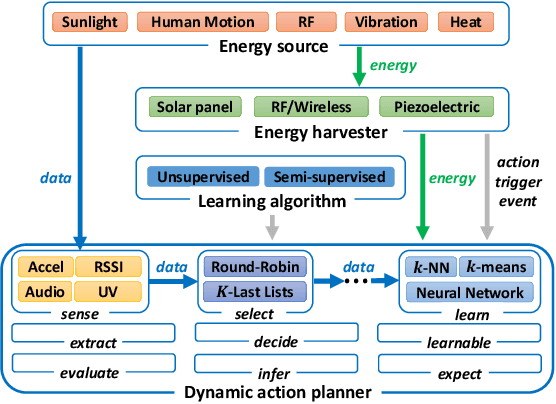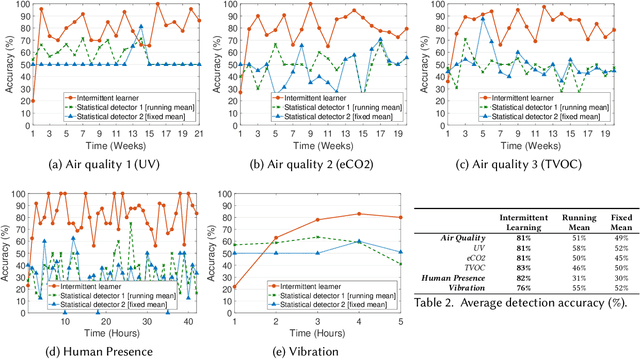Intermittent Learning: On-Device Machine Learning on Intermittently Powered System
Paper and Code
Apr 21, 2019



In this paper, we introduce the concept of intermittent learning, which enables energy harvested computing platforms to execute certain classes of machine learning tasks. We identify unique challenges to intermittent learning relating to the data and application semantics of machine learning tasks. To address these challenges, we devise an algorithm that determines a sequence of actions to achieve the desired learning objective under tight energy constraints. We further increase the energy efficiency of the system by proposing three heuristics that help an intermittent learner decide whether to learn or discard training examples at run-time. In order to provide a probabilistic bound on the completion of a learning task, we perform an energy event-based analysis that helps us analyze intermittent learning systems where the uncertainty lies in both energy and training example generation. We implement and evaluate three intermittent learning applications that learn the air quality, human presence, and vibration using solar, RF, and kinetic energy harvesters, respectively. We demonstrate that the proposed framework improves the energy efficiency of a learner by up to 100% and cuts down the number of learning examples by up to 50% when compared to state-of-the-art intermittent computing systems without our framework.
 Add to Chrome
Add to Chrome Add to Firefox
Add to Firefox Add to Edge
Add to Edge